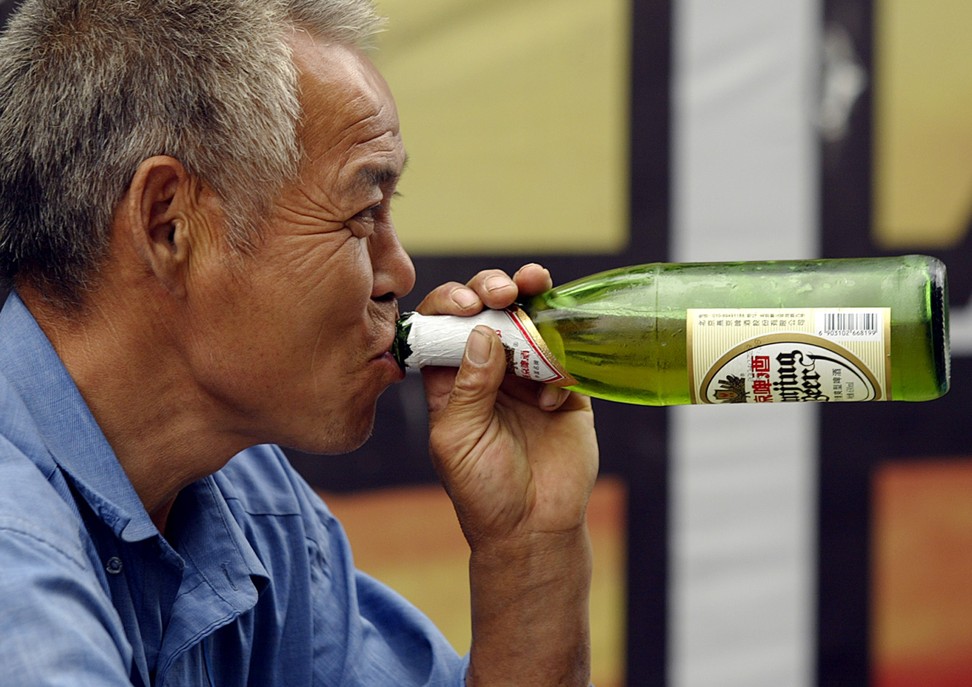
Problem drinkers in China: mostly men, usually poor, often stressed out, new study finds
- Alcohol dependence in China is becoming a significant national health problem, as in the West, says co-author of research published in the journal Addiction
- Problem drinking defined as drinking in the morning, being incapacitated by drink, unable to avoid drinking, having the shakes, and feeling bad after drinking
A study of half a million Chinese adults has found that eight per cent of men are problem drinkers, particularly those who are poor and live in rural areas.
Researchers from Peking University, the Chinese Academy of Medical Sciences and the University of Oxford studied more than 500,000 men and women aged 30 to 79 years from 10 rural and urban areas in China.
The study, published in the journal Addiction, defined “problem drinking” as drinking in the morning, being unable to work or to do anything due to drinking, negative emotions after drinking, being unable to avoid drinking, or having the shakes when stopping drinking.
Women in the study drank little alcohol, but a third of men drank alcohol regularly and a quarter of these had at least one indicator of problem drinking.

The research revealed that men with drinking problems had poorer self-reported health, poorer life satisfaction, more sleep problems, and a higher risk of depression and anxiety. Men with two or more problem drinking indicators were more likely to die prematurely and had a 15 per cent higher risk of hospital admission than low-risk drinkers.

The study also found that loss of income was strongly associated with increased drinking, and other factors included stressful life events such as debt and experience of violence.
The research team concluded: “Our study provides clear evidence that the experience of stressful life events over the past two years, particularly financial stress, was associated with an increased likelihood of past-month problem drinking in Chinese men.”

But associations with finance-related events were only significant among rural drinkers, together with high frequency of morning drinking.
In urban areas, younger men experienced more negative emotions after drinking and were more likely to be unable to work.
There were also regional differences, with the prevalence of problem drinking ranging from two per cent in Suzhou to 19 per cent in Sichuan.
The research authors says this reflected “the different contexts of problem drinking across regions and generations in China” and suggested “there may be contextual factors influencing the relationships between stress and problem drinking, for example the lack of financial support in the more deprived, rural drinker groups”.

The results support previous studies of Western populations which associate job loss with alcohol craving and problem drinking. Two studies on the changes in alcohol-use patterns during the 2008 economic crisis in European Union countries and in a US sample of two million adults showed the economic crisis was linked with increased rates of alcohol misuse and alcohol-related mortality and hospital admissions, particularly among the unemployed.
In 2010, alcohol-use disorder was the ninth leading cause of disability, and the second most common mental disorder after depression in China.

Co-author Dr Iona Millwood, says: “Drinking has been on the rise in China since the 1980s, and now we’re looking at a significant national health problem that is beginning to resemble those in Western countries. Knowing the scale of the problem, and the fact that it’s more intense in rural and poorer areas, can help to inform policy decisions to improve health outcomes in China.”

